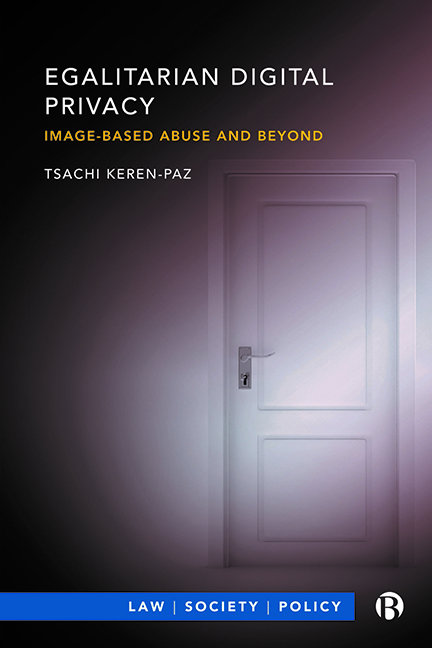Book contents
- Frontmatter
- Dedication
- Contents
- Acknowledgements
- Series Editor’s Preface
- 1 Introduction
- 2 Setting the Ground: The Intermediary Liability Debate and Framing Issues
- 3 First Principles and Occupiers’ Liability: The Case against Immunity
- 4 Property and Privacy: The Case for Strict Liability
- 5 Property and Privacy: Objections and Possible Extensions
- 6 The Policy Debate: Uniqueness of Harm from NCII
- 7 The Policy Debate: Freedom of Expression and Financial Costs of Filtering
- 8 The Easy Case for Viewers’ Liability: Child Pornography and Apportionment of Liability
- 9 Viewers’ Liability: Intention and Objective Fault
- 10 The Power of Property: Strict Liability for Viewing NCII
- 11 Scope of Liability for Breaches of Privacy
- 12 Is Suing Viewers Practicable?
- 13 Conclusion
- References
- Index
10 - The Power of Property: Strict Liability for Viewing NCII
Published online by Cambridge University Press: 17 January 2024
- Frontmatter
- Dedication
- Contents
- Acknowledgements
- Series Editor’s Preface
- 1 Introduction
- 2 Setting the Ground: The Intermediary Liability Debate and Framing Issues
- 3 First Principles and Occupiers’ Liability: The Case against Immunity
- 4 Property and Privacy: The Case for Strict Liability
- 5 Property and Privacy: Objections and Possible Extensions
- 6 The Policy Debate: Uniqueness of Harm from NCII
- 7 The Policy Debate: Freedom of Expression and Financial Costs of Filtering
- 8 The Easy Case for Viewers’ Liability: Child Pornography and Apportionment of Liability
- 9 Viewers’ Liability: Intention and Objective Fault
- 10 The Power of Property: Strict Liability for Viewing NCII
- 11 Scope of Liability for Breaches of Privacy
- 12 Is Suing Viewers Practicable?
- 13 Conclusion
- References
- Index
Summary
Introduction
Following from the previous chapter, this chapter explains why viewers’ liability could and should be strict, rather than be merely fault-based. Building on the discussion in Chapters 4 and 5 it further explains how a property-based understanding of privacy helps justify both strict liability and its proper limits; thus avoiding excessive liability. Hence, this chapter makes three contributions: doctrinal, normative and conceptual. Doctrinally, it explains that (1) the misuse of private information tort (Privacy) is already understood as a stricter form of liability; (2) that liability under Privacy might be stricter than under breach of confidentiality (from which Privacy sprung) and the justifications for this difference; and (3) Privacy can therefore accommodate viewers’ strict liability for viewing NCII (Part 2). Normatively, it then explains how the concepts of possession, passive behaviour and reliance make viewers’ strict liability to be justified and not excessive (Part 3). Theoretically, it inquires how conceptualizing information as property justifies strict, rather than fault-based, liability for viewing, despite the fact that the act of viewing both misappropriates and destroys value (Part 4); it thus complements the analysis offered in Chapters 4 and 5.
Current law and the privacy/confidentiality distinction
As we have seen, there is no clear answer to whether liability for Privacy is strict, although recently Lloyd v Google justified liability for loss of control in Privacy (normative damages, or the unilateral model discussed in Chapter 11) based on the nature of Privacy as a strict liability tort: ‘The privacy tort, like other torts for which damages can be awarded without proof of material damage or distress, is a tort involving strict liability for deliberate acts, not a tort based on want of care.’ Varuhas (2018: 63) concludes that liability for Privacy ‘seems to be towards the stricter end of the spectrum’ and while the claimant may need to leap over hurdles which a claimant for trespass to land needs not to, in order to establish the prima facie case for a breach ‘this difference does not necessarily demonstrate that liability in misuse of private information is not strict, or at least relatively strict’.
- Type
- Chapter
- Information
- Egalitarian Digital PrivacyImage-based Abuse and Beyond, pp. 175 - 193Publisher: Bristol University PressPrint publication year: 2023



